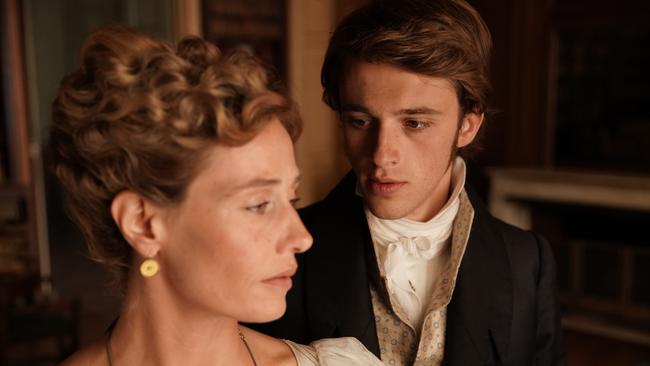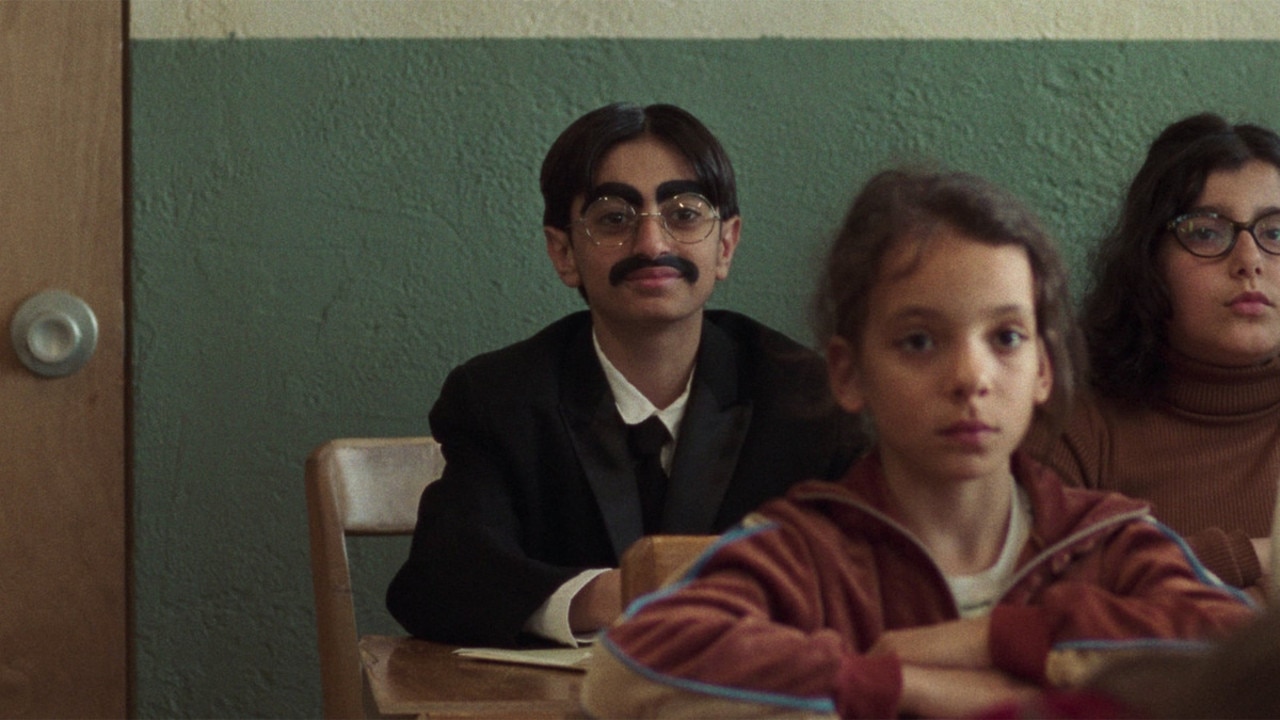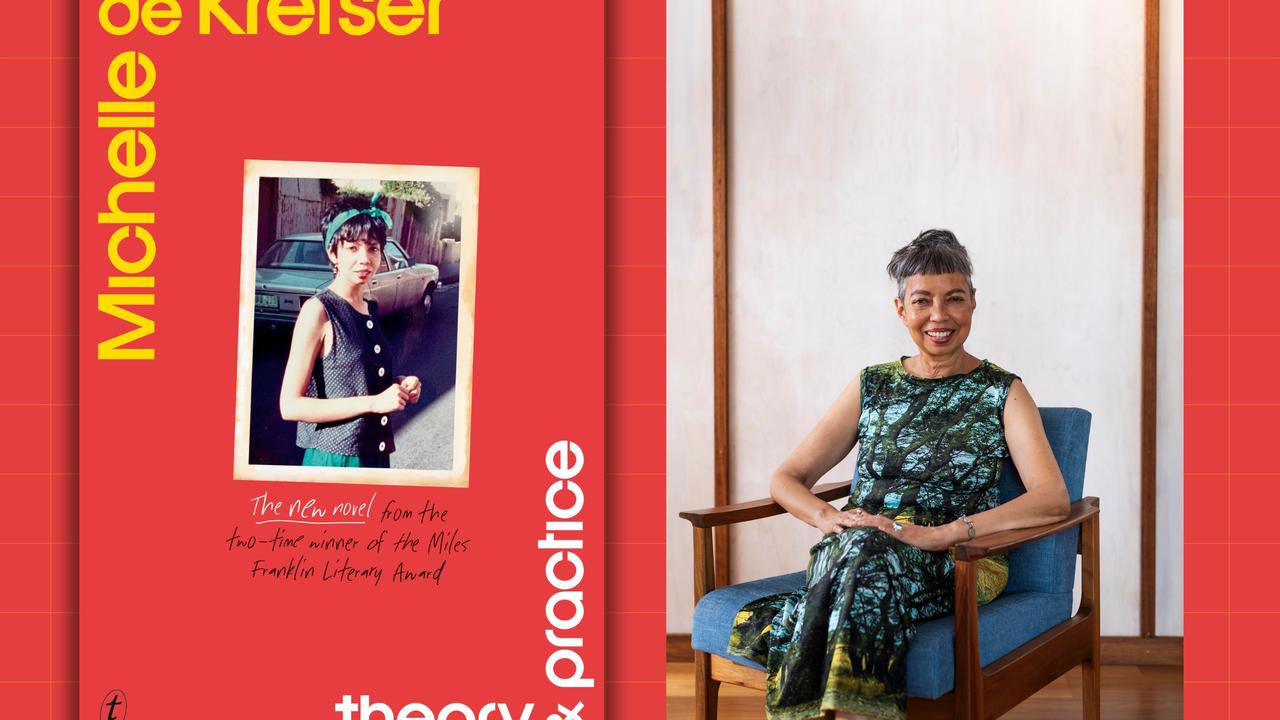Lost Illusions puts faux news in the frame
Two hundred years ago in Paris, journalists accepted bribes to write favourable articles and reviews for anyone willing to pay for them.

Lost Illusions (Illusions Perdues) (M)
In cinemas from Thursday
★★★★½
There’s nothing new about fake news. Two hundred years ago in Paris, according to the great writer Honore de Balzac’s massive book, Lost Illusions, journalists accepted bribes to write favourable articles and reviews for anyone willing to pay for them.
Balzac (1799-1850) is admired and respected for his devotion to realism in his novels, and his keen observation of detail. This is especially notable in his two magnum opuses, La comedie humaine (The Human Comedy), (1829-1848), the author’s epic collection of 91 interconnected novels and stories that illustrates a panorama of life in France in the post-Napoleonic era, and Illusions perdues (Lost Illusions), an almost equally epic creation, consisting of three novels and more than 700 pages, published between 1837 and 1843.
Clearly adapting this huge slice of literature for the screen was no easy task; a primitive silent version by American cinema pioneer Edwin S. Porter was made in 1911, and Hungary’s Gyula Gazdag tackled the material in 1983 in what might be described as a noble effort. The latest version, by the little known but consistently interesting French director, Xavier Giannoli, is something of a triumph.
In reducing the lengthy novel to a 2½ hour film, Giannoli has understandably made many changes and modifications, just as David Lean did with his exceptionally fine adaptations of Charles Dickens (Great Expectations, 1946, and Oliver Twist, 1948). But the core of the narrative is rock solid and the director is faithful to the spirit of the material and above all to the detailed observations with which Balzac illustrated his story. I was reminded of Martin Scorsese’s sublime adaptation of Edith Wharton’s The Age of Innocence (1993), which was also distinguished by a detailed observation of the manners and mores of its era, revelling in its décor, art, furniture, costumes and even its cutlery and glassware.
Lost Illusions is the story of Lucien de Rubempre (the talented Benjamin Voisin), a dreamer born and raised in the countryside and who had ambitions to be a poet. He is enamoured with the lonely and neglected Louise de Bargeton (Cecile de France), for whom he composes poems under the collective title of “Marguerites”. It was surely unwise of Louise to pay for the printing and publication of the poems; her husband is certainly unimpressed, especially when the compromised Lucien leaves for Paris and Louise also happens to travel to the French capital to stay with her cousin, the formidable Marquise d’Espar (Jeanne Balibar).
With his eye firmly set on making his mark in the world of literature and high society, the social climbing Lucien makes a fool of himself soon after his arrival in the capital when he attends the Paris opera one evening. It’s a superbly staged scene as the maladroit country bumpkin makes every social gaffe in the book, drawing attention to himself in the worst way.
Bitter reality very soon persuades Lucien that there’s no easy path to fame and fortune as a writer. Waiting on tables in a restaurant will go some way towards paying his bills, and it’s while carrying out this occupation that he meets Etienne Lousteau (Vincent Lacoste), a newspaper editor who sees potential in the young man and offers him employment. In Lousteau’s view, the role of a journalist is to make the newspaper’s shareholders rich, and that’s quite easy to achieve. If an artist wants a favourable review of his or her new creation – a work of literature, or a play, or a painting – he only has to pay the critic for the privilege; similarly, a favourable article written about some prominent figure is easily arranged if money changes hands.
At the time (1821) journalism was undergoing a radical change, thanks to the introduction of the printing press, and the ambitious Lucien finds himself, thanks to Lousteau’s connections, in contact with other writers like Raoul Nathan (Xavier Dolan). He also meets the powerful publisher Dauriat (Gerard Depardieu in a fine cameo role), a very self-opinionated character who is always surrounded by acolytes. One of the key scenes in the film comes when Lucien, seeking to avenge himself on Dauriat who has rejected his work, is assigned to review the latest book by Nathan, which is a Dauriat publication, and has to wrestle with his conscience over whether to seize this opportunity to humiliate the publisher by writing a destructive review of what he realises is a very fine book. Balzac’s derisive depiction of the roles of the journalist and critic are uncompromising.
In the meantime, Lucien has transferred his affections to Coralie (Salome Dewaels), a “boulevard” actress with ambitions to perform on the “legitimate” stage. These complex and richly detailed scenes, all handled with flair by Giannoli, offer a seductive insight into life in Paris at the time.
Giannoli directed his first feature, Les corps impatients (Eager Bodies) in 2003; the first of his films that I saw was Quand j’etais chanteur (The Singer), 2006, in which Gerard Depardieu played the title character, an entertainer in a provincial town whose popularity is waning. The director has often worked with Depardieu and with Cecil de France, and prior to Lost Illusions, his films invariably explored the fringes of show business. In Superstar (2012) a nonentity suddenly achieves fame and Marguerite (2015) tells the story of Marguerite Dumas, a wealthy woman who liked to entertain her friends with her singing despite the fact that she was tone deaf – the character was inspired by Florence Foster Jenkins who was played by Meryl Streep in a film directed by Stephen Frears in 2016 – both films are good but I’d argue that Giannoli’s is the better of the two.
Lost Illusions is his best work to date, a triumphantly successful adaptation of a challenging novel, and we can only await his subsequent work with the greatest of interest.
-
The Kitchen Brigade (La Brigade) (M)
In cinemas
★★★½
Louis-Julien Petit’s The Kitchen Brigade is a feel-good French movie that hews to a familiar but serviceable formula, that of a misfit who, against all the odds, triumphs.
In this case the misfit is Cathy-Marie (Audrey Lamy) who we first meet when she’s working as sous chef in the fashionable restaurant owned by celebrity chef Lyna Deletto (Chloe Astor). The popular TV culinary show The Cook is filming in the restaurant when Cathy-Marie and Lyna have a spectacular falling-out and Cathy is fired.
Unable at first to find new employment, she eventually swallows her pride and accepts a job as cook in a hostel for migrants, many of whom are awaiting to hear whether or not they will be deported.
The young men who live in the hostel have until now been used to simple food – ravioli being the staple on the menu according to the institution’s director, Lorenzo (Francois Cluzet). But Cathy-Marie has higher standards than that and provides a far more varied and nutritious selection of dishes, eventually incorporating the African recipes the migrants learnt from their mothers back home.
There are no prizes for guessing how this all turns out and fans of French cinema who like happy endings will have a good time with the film.
Particularly enchanting is Chantal Neuwirth who plays the character of Sabine, a cheerfully plump employee of the hostel who becomes Cathy-Marie’s closest ally.
The combination of scenes in which delicious-looking food is prepared and consumed, satire at the expense of a TV cooking show, and a sympathetic approach to the migrants awaiting their fate, proves to be a sure-fire combination.
The film is predictable and formulaic, but it’s easy to enjoy it nonetheless.





To join the conversation, please log in. Don't have an account? Register
Join the conversation, you are commenting as Logout